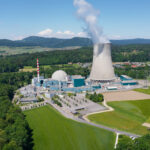There is no turning back from the energy transition in Poland. It is a necessity and a requirement of the current times. Although it will cost more than one trillion PLN, it presents an opportunity to transform the national economy. The changes will include not only the energy industry, but also construction and transport.
These are the conclusions of the Energy Transition Congress, organised by the Energy Club in Warsaw on 14 June 2023.
The pace of Poland's transformation and EU climate policy
The event’s attendees discussed the pace of the energy transition in Poland in the context of:
- EU climate policy,
- global trends,
- emission reduction,
- costs of economic transformation,
- funding opportunities for clean energy projects.
Congress attendees, including experts and business representatives, discussed:
- the conditions for implementation of pro-climate projects,
- improving energy efficiency in the construction industry,
- promotion of e-mobility.
The Congress was held in a special format, and panel discussions on key topics such as the directions and financing of the transition, green construction, e-mobility etc. were preceded by short introductory debates, each with two guests.
Learn more:
Costs and benefits of the energy transition
We want our country to be independent, secure and have affordable energy. We want to boost the economy and encourage investors.
Anna Łukaszewska-Trzeciakowska, Government Plenipotentiary for Strategic Energy Infrastructure
In her view, Poland must prepare “for a whole new European reality” because of Russia’s aggression against Ukraine. The second reason is the pressure of the European Union’s accelerating climate policy.
There will be a change in the energy mix in the next few years, although coal will continue to be the fuel providing dispatchable capacity for some time to come. Later on, this role will be taken over by nuclear power plants – both large- and small-scale (SMRs). Stable renewables will also be needed. This is why the construction of offshore wind farms or biogas plants is so important.
The transition will involve huge investment and costs. This is because in the electricity industry, which is currently based on coal (more than 70% of energy production), the changes will be radical.
When we say that between PLN 1.2 trillion and PLN 1.4 trillion are needed for the energy transition in Poland, the amounts can be striking. "Of this amount, PLN 700 billion is needed for investments in new energy sources and around PLN 500 million for grid infrastructure, but much depends on the pace of implementation of these projects.
Bartłomiej Pawlak, Vice-President of the Board, Polish Development Fund
Although the outlays will be enormous, according to Mr Pawlak, if Poland “does not follow a rapid transformation path, it will bear the cost of marginalising the economy. According to Mr Pawlak, “we cannot simply wait out certain processes”.
PFR’s Vice-President estimates that PLN 400 billion can be obtained by Poland from EU funds to finance the transformation, and an amount of around PLN 700-800 billion can also be generated from commercial and aid funds.
Learn more:
Green building solutions will accelerate
Panel summary:
- The construction industry is striving to improve the energy efficiency of buildings. Skanska aims to achieve carbon neutrality by 2045. The ambitious plan is to be helped by the introduction of heat pumps, solar panels and wind turbines into the buildings. However, innovative solutions can increase the cost of eco-housing by 2-5%.
- An EU directive requires the construction of zero-emission buildings from 2028. This is changing the expectations of buyers, who are increasingly focusing on energy efficiency. Green building solutions are gaining importance. Customers appreciate the benefits of energy savings, translating into lower costs of home maintenance.
Stability of the energy system is key
Panel summary:
- Representatives of the energy industry gave a positive assessment of the update of Poland’s energy strategy. However, they mentioned grid investments among the biggest challenges. It is the grids that are becoming the bottleneck of transition. The continuously increasing number of green megawatts is resulting in a flurry of refusals to connect new sources.
- The need to ensure the stability of energy supplies, while gradually reducing the use of coal, was emphasised. Coal-fired power stations are to be replaced by renewables and nuclear units. The latter will be the new stabiliser of the energy system.
- The “Renewables boom” must be systematised and subjected to a logical grid management system. An analysis of prosumer investment plans is also needed to make the distribution system work efficiently.
Learn more:
Imporance of the subsidies and infrastructure for e-trucks
Panel summary:
- The alternative fuels industry highlighted the need to accelerate changes in the long-distance transport sector. Higher state subsidies would be helpful here.
One of the challenges is the lack of dedicated charging points for HGVs in Poland, which hinders the electrification of the sector. This is important in the context of the EU requirements for 2030 regarding charging capacity to be secured on major transport routes. - The lack of dedicated charging points for trucks hinders the electrification of the sector. Electric trucks are attracting interest, but sales are still limited. Demand is mainly generated by companies that are increasingly taking environmental aspects into account.
- The congress further discussed the financing of “green transition”, noting the need for good projects. The government has also announced the amount of ca. PLN 15 billion for investment in power grids, crucial for generation sources. In turn, banks, but also companies and institutions, emphasised their commitment to financing green projects, seeing the need for climate action.
The congress further discussed the financing of “green transition”, noting the need for good projects. The government has also announced the amount of ca. PLN 15 billion for investment in power grids, crucial for generation sources. In turn, banks, but also companies and institutions, emphasised their commitment to financing green projects, seeing the need for climate action.
Learn more:








